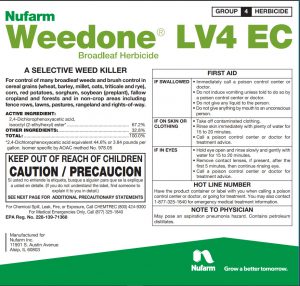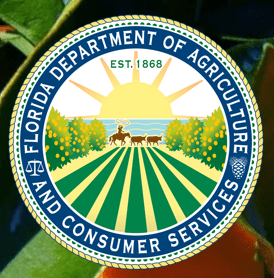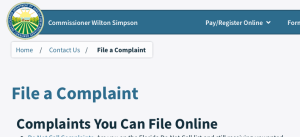Hello Avid Readers! Have you ever witnessed a pesticide application and wondered, should they be doing that? According to the law (FIFRA) pesticide misuse is, “the use of a pesticide in a way that violates laws regulating their use or endangers humans or the environment”. This blog will further describe pesticide misuse, what kind of violations can be given, and what you should do if you suspect a violation.
What Does Pesticide Misuse Look Like?
Most types of pesticide misuse are label violations. This means the applicator is not following the instructions and restrictions on the pesticide label. The laws apply to your average homeowner as well as certified applicators. A few examples of what this might look like are spelled out.
Mothballs are a pesticide product. Misuse of mothballs would include using them on any site or in any way not included on the label. Scattering moth balls around a chicken coop to deter raccoons goes against the instructions and sites of use listed on the label. For more details on mothballs check out “The Facts About Mothballs”. All other pesticides have sites listed on the label which they are approved for as well. It is considered pesticide misuse any time a product is used on a site not listed on the label. To better understand the label and where to find this information check out our series on “How to read a Label”.

Another example of pesticide misuse would be using the wrong dose for an application. This can be difficult to determine. If the application leaves a burn on plants it could have been an overdose, but could also have been the wrong product for that plant. The latter isn’t necessarily pesticide misuse but could have just been poor product selection.
Sometimes pesticide misuse isn’t something visible. Some pesticides are Restricted Use Pesticides (RUPs). In order to use these one must be a certified applicator. Without ht eproper certification any application of RUPs would be pesticide misuse. Also, an applicator of RUPs should be certified in the category that pertains to the type of work they are doing. If for example, an applicator is certified in the “Aquatic” category, but is applying pesticides to a residential yard, this is pesticide misuse.
Who is overseeing Applicators?
The Florida Department of Agriculture and Consumer Services (FDACS) grants certification to applicators of RUPs. Applicators must take approved courses for continuing education to keep their certification up to date. FDACS also does routine inspections of pesticide applicators and agricultural establishments. If a violation is noted, as the entity in charge of enforcement, they will determine if a citation and any punitive measures are in order.

What Can I do?
If you see someone using pesticide in a manner that concerns you, let FDACS know! There is a form that can be submitted to FDACS found here https://www.fdacs.gov/Contact-Us/File-a-Complaint. When violations are alleged, a case file is evaluated and a case file review summary is prepared to review the alleged violation, the identity of the suspected violator, and the type and degree of evidence collected by an investigator. If the issuance of an administrative complaint is deemed warranted, the violator will be served. The complaint will state the basis for the action and will include a “Notice of Rights and Hearing Request” information sheet. This explains the respondent’s rights and provides an area for the respondent to request either an informal or formal administrative proceeding.

What if I’ve been Wrongly Accused?
Mistakes and misinterpretations of the law can happen. The information included with the violation will describe Informal and formal hearings and how they can be requested by applicators who feel the violation was an error. You have 21 days to make a request for a hearing.
Additional Resources
FDACS Pest Control Compliance Assistance
 3
3
